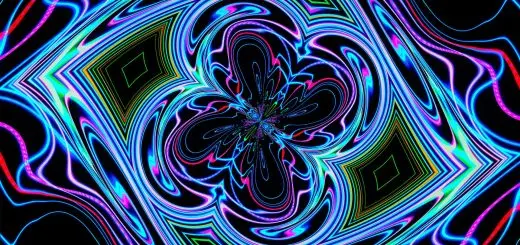How Do Hallucinations Relate to Consciousness?

Looking for more amazing products? Check out our online store and explore our collection here! Happy shopping!
Before diving in, please note: This post is for informational purposes only. If you’d like to know more about how we approach topics, feel free to check out our friendly Disclaimer Page.
Hey there, amazing readers! 
We’re committed to delivering quality posts, and your support (even just sticking around despite the ads) means everything to us. So, bear with us, and thanks for helping us keep the good vibes rolling. Now, on to the fun stuff!
TRANSLATE BUTTON AT THE END OF THE ARTICLE
Introduction: Understanding the Link Between Hallucinations and Consciousness
Hallucinations have long been a topic of intrigue and mystery in the realm of psychology and neuroscience.
These perceptual experiences, which occur in the absence of external stimuli, offer a unique window into the workings of the human mind.
At the core of this enigma lies the question of how hallucinations relate to consciousness.
Understanding this relationship not only sheds light on the nature of perception but also provides valuable insights into the complexities of the human brain.
What Are Hallucinations?
Hallucinations can be defined as sensory experiences that occur without any corresponding external stimulus.
These experiences can manifest in various forms, such as seeing, hearing, feeling, tasting, or smelling things that are not actually present.
While hallucinations are often associated with conditions like schizophrenia, they can also occur in individuals without any underlying mental health disorders.
This diversity highlights the intricate nature of hallucinatory experiences and underscores the need for a more nuanced understanding of their mechanisms.
Types of Hallucinations and Their Characteristics
Hallucinations can be classified into different types based on the sensory modality involved.
Visual hallucinations, for example, involve seeing things that are not there, while auditory hallucinations pertain to hearing sounds or voices that have no external source.
Other types of hallucinations include tactile, olfactory, and gustatory experiences.
Each type of hallucination comes with its own set of characteristics, ranging from vividness and emotional intensity to the perceived reality of the hallucinatory content.
The Neurobiology of Hallucinations
The neurobiological basis of hallucinations is a subject of ongoing research and debate.
Studies have implicated various brain regions and neurotransmitter systems in the generation of hallucinatory experiences.
For instance, abnormalities in the dopamine system have been linked to the development of auditory hallucinations in schizophrenia.
Additionally, alterations in the primary sensory areas and higher-order cortical regions may contribute to the perceptual distortions observed in hallucinations.
Understanding the neural underpinnings of hallucinations is crucial for unraveling their connection to consciousness.
The Role of Perception in Hallucinations
Perception plays a central role in the generation of hallucinations.
The brain’s intricate processing of sensory information can sometimes lead to misinterpretations or distortions of reality, giving rise to hallucinatory experiences.
Factors such as attention, expectation, and context can influence how sensory inputs are perceived, leading to the emergence of hallucinations.
By exploring the mechanisms underlying perception, researchers can gain valuable insights into the cognitive processes that underpin hallucinatory phenomena.
The Influence of Emotions on Hallucinations
Emotions play a significant role in shaping hallucinatory experiences.
Studies have shown that emotional states can modulate the occurrence and content of hallucinations.
For example, heightened stress or anxiety levels have been associated with an increased likelihood of experiencing hallucinations.
Similarly, positive emotions can also influence the nature of hallucinatory content, leading to more pleasant or rewarding experiences.
Understanding the interplay between emotions and hallucinations is essential for elucidating the complex dynamics of consciousness.
Hallucinations and Mental Health Disorders
Hallucinations are commonly associated with various mental health disorders, including schizophrenia, bipolar disorder, and post-traumatic stress disorder.
In these conditions, hallucinations can be a hallmark symptom that significantly impacts an individual’s quality of life.
The relationship between hallucinations and mental health disorders is complex, with factors such as neurotransmitter imbalances, structural brain abnormalities, and genetic predispositions playing a role in their development.
Explore the Path to Spirituality and Enlightenment – Start Here.
Treating hallucinations in the context of mental health disorders requires a holistic approach that addresses both biological and psychological factors.
Does Consciousness Affect Hallucinations?
Consciousness is intricately linked to the occurrence and interpretation of hallucinatory experiences.
The contents of consciousness, such as attention, awareness, and self-reflection, can influence the onset and intensity of hallucinations.
Alterations in consciousness, whether induced by meditation, hypnosis, or psychoactive substances, can also impact the nature of hallucinatory perceptions.
By exploring how consciousness interacts with hallucinations, researchers can uncover valuable insights into the mechanisms that govern subjective experiences.
Theories on the Relationship Between Hallucinations and Consciousness
Several theories have been proposed to elucidate the relationship between hallucinations and consciousness.
The predictive coding framework, for instance, posits that hallucinations arise from abnormalities in the brain’s predictive mechanisms, leading to the generation of false percepts.
In contrast, the hyperfamiliarity hypothesis suggests that hallucinations stem from an overactivation of memory-related circuits, resulting in the perception of familiar but nonexistent stimuli.
These theoretical perspectives offer valuable frameworks for understanding how consciousness and hallucinations intersect.
Can Hallucinations Be Controlled Through Consciousness?
The idea of controlling hallucinations through consciousness raises intriguing possibilities for both research and practical applications.
Techniques such as mindfulness meditation and cognitive-behavioral therapy have shown promise in modulating the frequency and intensity of hallucinatory experiences.
By cultivating greater awareness and metacognitive skills, individuals may gain more control over their perceptual processes, potentially reducing the impact of hallucinations on their daily lives.
Exploring the potential of consciousness-based interventions for managing hallucinations represents a promising avenue for future research.
Implications for Understanding the Mind-Body Connection
The relationship between hallucinations and consciousness offers valuable insights into the mind-body connection.
By examining how subjective experiences arise from the complex interplay of neural processes and conscious awareness, researchers can gain a deeper understanding of the mechanisms that underpin human cognition.
This holistic perspective underscores the importance of viewing mental phenomena as interconnected facets of a larger system, rather than isolated occurrences.
By exploring the mind-body connection through the lens of hallucinations, we may uncover new ways of approaching mental health and well-being.
Conclusion: Exploring the Complex Interplay Between Hallucinations and Consciousness
In conclusion, the relationship between hallucinations and consciousness is a multifaceted and fascinating area of study that holds great potential for advancing our understanding of the human mind.
By delving into the neurobiological, perceptual, emotional, and theoretical aspects of hallucinatory experiences, researchers can unravel the intricate connections between consciousness and subjective reality.
Exploring how consciousness influences the generation and interpretation of hallucinations opens up new avenues for investigating the nature of perception, cognition, and self-awareness.
Ultimately, by embracing the complexities of hallucinations, we may gain deeper insights into the mysteries of consciousness and the fundamental nature of human experience.

The Enlightenment Journey is a remarkable collection of writings authored by a distinguished group of experts in the fields of spirituality, new age, and esoteric knowledge.
This anthology features a diverse assembly of well-experienced authors who bring their profound insights and credible perspectives to the forefront.
Each contributor possesses a wealth of knowledge and wisdom, making them authorities in their respective domains.
Together, they offer readers a transformative journey into the realms of spiritual growth, self-discovery, and esoteric enlightenment.
The Enlightenment Journey is a testament to the collective expertise of these luminaries, providing readers with a rich tapestry of ideas and information to illuminate their spiritual path.
Our Diverse Expertise
While our primary focus is on spirituality and esotericism, we are equally passionate about exploring a wide range of other topics and niches 

To ensure we provide the most accurate and valuable insights, we collaborate with trusted experts in their respective domains 
Our blog originally focused on spirituality and metaphysics, but we’ve since expanded to cover a wide range of niches. Don’t worry—we continue to publish a lot of articles on spirituality! Frequently visit our blog to explore our diverse content and stay tuned for more insightful reads.
Hey there, amazing reader! 
Check out our store here and take a peek at some of our featured products below! Thanks for being awesome!












